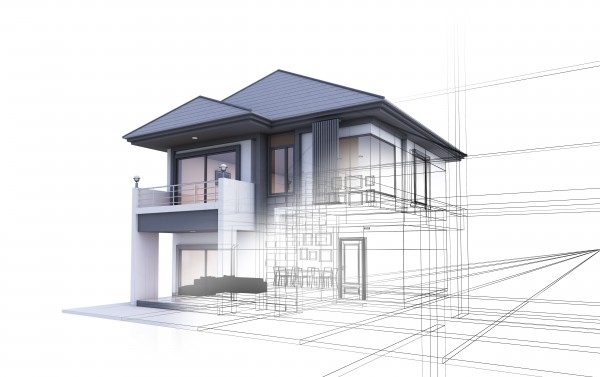What insurance should you have when self-building?
Sleepless nights are part and parcel of any self-build project. The never ending to-do lists are overwhelming at the best of times. Getting the right insurance in place from the very start is one less weight on your mind.
No self-build project is without risk – from theft, weather or personal damage, so taking out the suitable self-build insurance to cover you from start to finish is essential. That way, if any issues arise you can rest safe in the knowledge that everything is covered.
If you need to take out a mortgage to fund your project, your mortgage provider may stipulate that you need self-build insurance before you can borrow money. This helps to protect the money they lend you for building.
Self-build home insurance covers you as the employer of the project, your workers, your land, your materials, and any damage to the home you’re building.
A self-build mortgage could be the answer to financing your dream home, so here's all you need to know about taking out a self-build mortgage.

What do you need?
Site insurance should be in place from the moment you exchange contracts on the plot or property you are about to start work on. This covers the works in progress and the below:
Public Liability insurance – this covers legal liability for claims made by any other person or body in respect of death, injury or loss arising from your building operations.
Employer's Liability insurance - this is a legal requirement if you are employing anyone. This can also be a factor if any sub-contractor working for you has an accident on site where your duty to provide a safe working site could be called into question.
Contracts Works insurance - protects against losses through theft, vandalism, structural damage, fire, flood, storm damage, damage by delivery vehicles, etc.
Other optional cover includes legal expenses, which can help to pay the cost of any contract disputes which may arise when building your own home or the removal of squatters from site during the insured period.
It’s not something you particularly want to think about but it’s important for a self-builder to consider that in the event of their death, or incapacity, the project can be finished. Arranging additional life and/or injury cover for themselves and/or their beneficiaries is worth considering. Personal accident protection would pay a lump sum if you’re injured during building works.
Other insurance - you may also require special additional cover on occasions when any specialist services are being provided on site by third parties.
If you are new to self-building, or just want to see our thoughts on the steps involved in a self-build and what the process is, then download our guide.

Don’t rely solely on your builder’s insurance
If you carry out a project by using a builder you must always check they have insurance and that it’s valid and offers sufficient cover – don’t just assume they have a policy. It could be a costly assumption. However, during the process of self-building it’s likely that you may build your own materials such as kitchen units, for example. If any of those items are stolen or damaged, because they were not purchased by your builder, means you cannot claim for them. Getting your own insurance policy is a must. Again, if you use subcontractors do not rely on their insurance only. You are technically considered to be the main contractor and deemed to be employing all of the people working on the site.
You may have cover but you’ll still need to keep the site safe and secure to make sure any theft, damage or vandalism claims you make will be covered so read your policy very carefully to make sure you meet the requirements.
Read our tips on how to find the right builder or sub-contractor here.

The end in sight
It’s not over once you’ve finished your build. Make sure you obtain buildings insurance policy as soon as it is complete. Standard construction buildings can be covered by a standard home insurance policy – but it has to be signed off by a builder with the correct planning permission attached. Non-standard construction self-builds (those with a flat roof, for example) will need a non-standard home insurance policy to ensure proper coverage.
How much will it cost?
Self-build insurance costs vary according to each project but it is worth visiting comparison websites to get a rough idea of costs. There are dedicated self-build insurance providers so search for them when it comes to choosing a policy provider. When choosing a policy, check very carefully who is and who is not covered by each insurance company. If you are in any doubt, obtain written clarification from the policy provider.

